|
As we all continue to adjust to the new normal of social isolation, news organizations (including ours) are publishing helpful articles that offer practical advice on how to cope with different aspects of life during a pandemic.
Today in The Conversation Canada, Ryan Van Lieshout, a psychiatrist from McMaster University whose research is aimed at helping women who are struggling with mental health problems during pregnancy, looks at ways mothers suffering from postpartum depression can stay healthy during these scary times. “Adjusting to parenthood after delivery is challenging under normal circumstances, let alone in the midst of a global pandemic,” he writes.
Also today:
Regards,
|
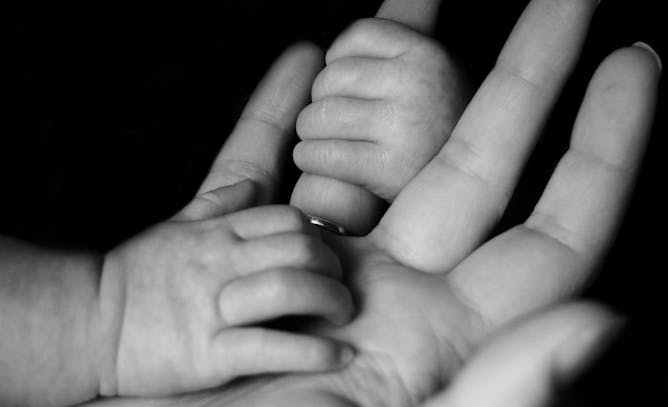
As many as one in five women experience postpartum depression.
(Liv Bruce/Unsplash)
Ryan Van Lieshout, McMaster University
For new mothers with postpartum depression, social distancing limits some of the best ways to improve their mental health.
|

An inscription on the Peace Arch at the crossing between Washington state and British Columbia alludes to the special border relationship between the U.S. and Canada.
THE CANADIAN PRESS/Jonathan Hayward
Bruno Dupeyron, University of Regina
The U.S. wanted to use the coronavirus pandemic as a reason to send the military to its northern border. The idea is part of America's desire to "Mexicanize" the world's longest undefended border.
|
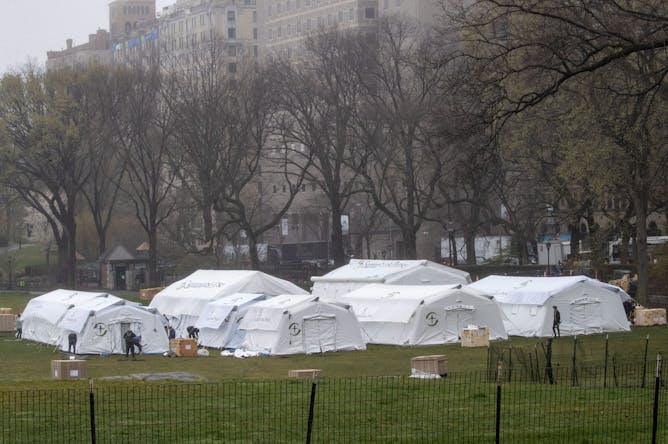
A crew works on building a 68-bed emergency field hospital specially equipped with a respiratory unit in New York’s Central Park on March 29, 2020.
AP Photo/Mary Altaffer
Shauna Brail, University of Toronto
The impacts of coronavirus on cities are extraordinarily difficult. Yet around the world, cities are responding rapidly and decisively to the crisis and its implications for urban life.
|
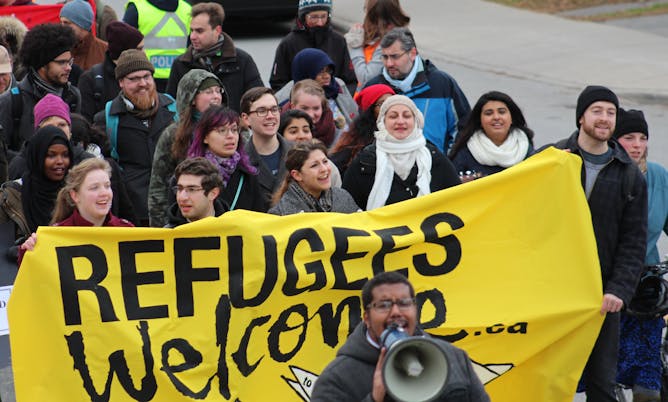
In 2015, Canadians across the country organized in support of Syrian refugees arriving in the country; these rallies were planned online.
(Mike Gifford/flickr)
Delia Dumitrica, Erasmus University Rotterdam; Maria Bakardjieva, University of Calgary; Mylynn Felt, University of Calgary
Online social movements are not leaderless. On the contrary, leadership duties are often assumed by identifiable individuals committed to doing leadership work.
|
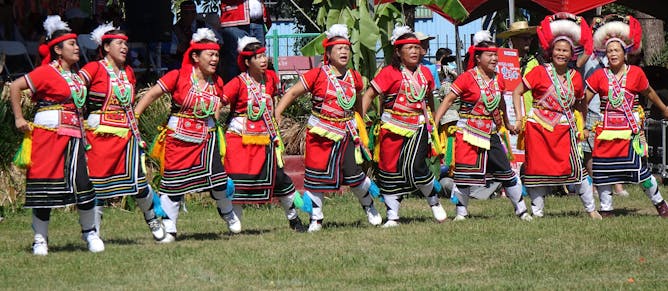
Members of the Indigenous Amis tribe in traditional costumes participate in the yearly harvest festival in Kaohsiung, Taiwan in September 2018.
(Shutterstock)
Cassandra Preece, McMaster University
For Indigenous voters in Taiwan, the current system prevents many of them from having an impact on the election of representatives where they live.
|
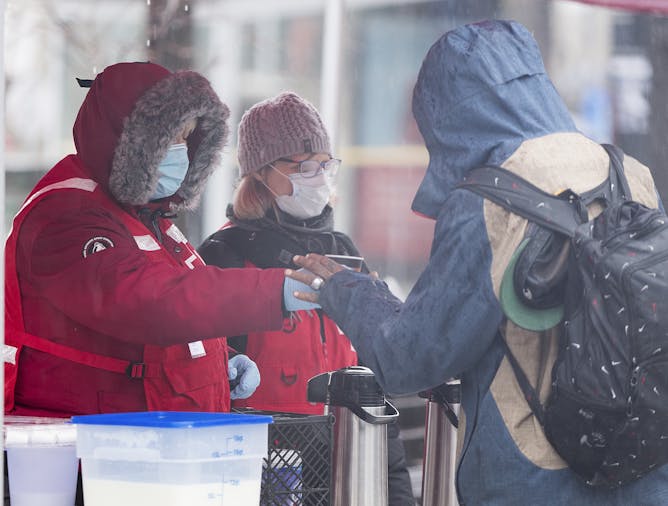
Un travailleur de la santé distribue une boisson chaude à un homme dans un centre de jour extérieur pour sans-abri à Montréal, le dimanche 29 mars 2020, alors que les cas de COVID-19 augmentent au Canada et dans le monde.
LA PRESSE CANADIENNE/Graham Hughes
David Grant-Poitras, Université du Québec à Montréal (UQAM); Diane Alalouf-Hall, Université du Québec à Montréal (UQAM); Jean-Marc Fontan, Université du Québec à Montréal (UQAM)
La Covid-19 nous contraint au confinement. Mais les besoins des personnes plus vulnérables, eux, ne disparaissent pas. Les organismes communautaires doivent s’adapter rapidement pour y répondre.
|
Health
|
-
Norman Fenton, Queen Mary University of London; Magda Osman, Queen Mary University of London; Martin Neil, Queen Mary University of London; Scott McLachlan, Queen Mary University of London
We need to update models on death rates or introduce truly random testing to understand the true impact of the coronavirus.
|
|
Science + Technology
|
-
James Jin Kang, Edith Cowan University; Paul Haskell-Dowland, Edith Cowan University
Your mobile internet bandwidth is shared with others in your area. That's why many people trying to access the iternet at the same time results in slower speeds.
|
|
Arts
|
-
Aniko Bodroghkozy, University of Virginia
During our current bout of collective trauma, many of our coping strategies have mimicked the ways Americans responded to the Kennedy assassination.
|
|